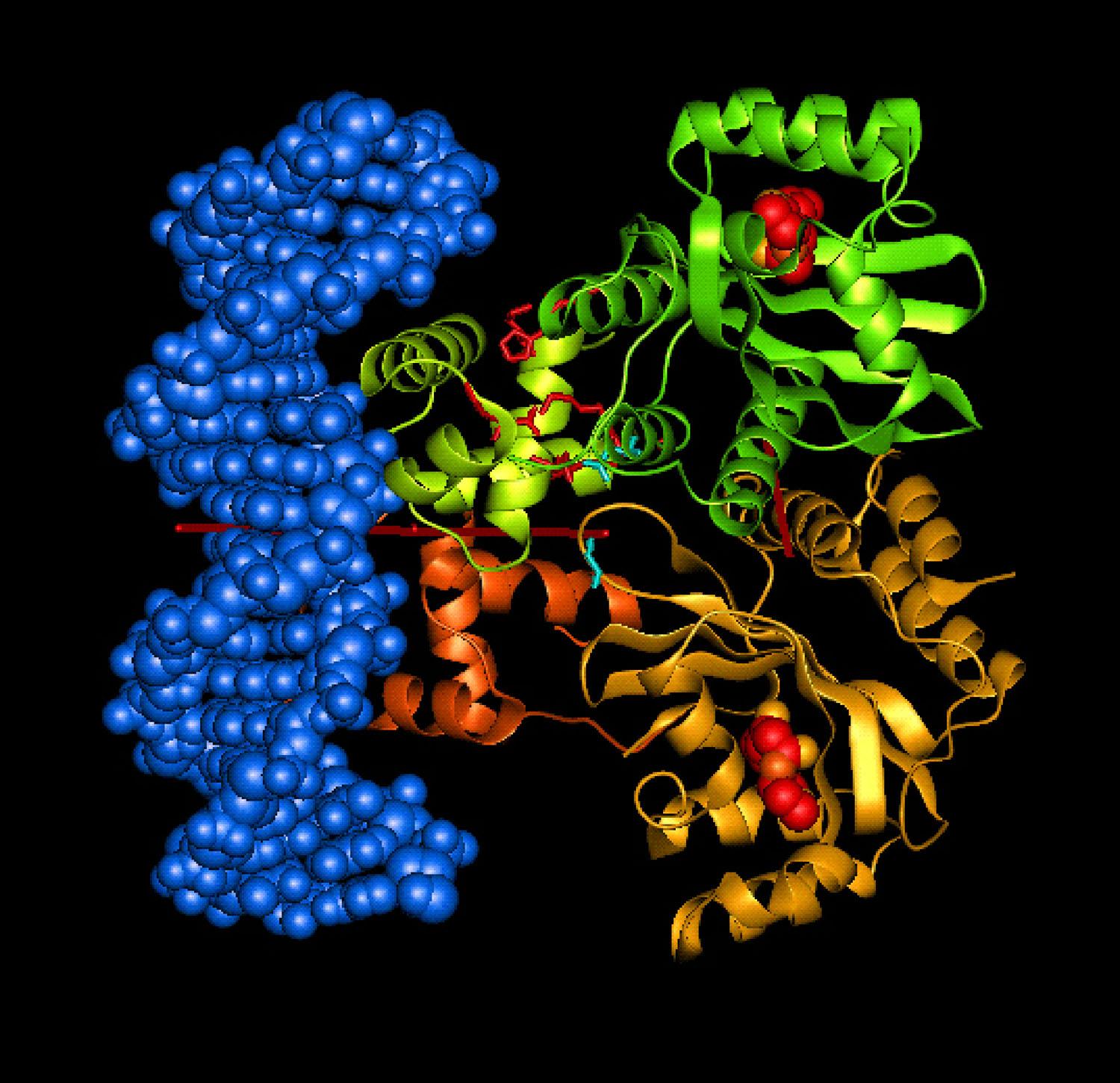Overview
The Protein Analysis Core provides a variety of analytical services focused on biophysical characterization of structural and functional properties of proteins in solution, under native, non-denaturing conditions. We perform quality control of protein samples (folding, stability, aggregation); measure molecular weight of proteins, protein complexes, oligomers and assemblies; characterize protein conformation and shape in solution; determine oligomeric state of protein (including stoichiometry and Kd for self-association) and measure protein binding to proteins, peptides, small molecules, compounds, metals, nucleotides and other ligands (including determination of equilibrium (Kd) and kinetic rate (kon, koff) constants, stoichiometry, binding enthalpy and entropy).
Services
- Analytical ultracentrifugation (AUC)
- Differential scanning calorimetry (DSC)
- Grating-Coupled Interferometry (GCI)
- Isothermal titration calorimetry (ITC)
- Microscale Thermophoresis (MST)
Equipment & Resources
- Analytical ultracentrifuge, ProteomeLab™ XL-I (BeckmanCoulter)
In AUC experiment, the effects of G-force on macromolecules (proteins, protein complexes and assemblies, organelles, nanoparticles, etc) are monitored in real time via two optical detection systems. Depending on centrifugation speed and molecular weight, macromolecules either form a concentration gradient in the AUC cell, or slowly sediment towards the bottom of the cell. Applications of AUC include molecular weight measurement for proteins and protein complexes; protein to protein binding including Kd determination for self- and hetero-association, characterization of protein shape, oligomerization, aggregation and heterogeneity of protein samples. - Differential Scanning Calorimeter, VP Capillary DSC (Microcal/Malvern)
In DSC experiments, thermal unfolding of proteins is monitored via changes in the heat capacity. These changes are believed to originate from the disruption of the forces stabilizing native protein structure (such as van der Waals, hydrophobic and electrostatic interactions, hydrogen bonds) and the hydration of the exposed residues. Therefore, protein denaturation profiles and thermodynamic parameters obtained from DSC experiments, such as calorimetric enthalpy (H) and denaturation temperature (Tm) are sensitive to the structural state of proteins. Applications of DSC include evaluation of protein folding and effects of mutations and modifications on protein structural properties, optimization of buffer formulations for protein storage and experiments, quality control of protein samples, detection of protein binding to compounds, other proteins, peptides, ligands, etc. - Grating-Coupled Interferometer, WAVEdelta (Creoptix/Malvern)
Newest microfluidic method, similar to SPR (e.g. Biacore) based on GCI technology. The protein is immobilized on the chip, which may affect protein properties or its interaction with ligands. However, advantages of GCI include high sensitivity, small amount of protein required, broad detection range and ability to measure ON and OFF kinetic rates and Kd for a wide range of ligands. - Isothermal titration calorimeter, Affinity ITC (TA Instruments/Waters)
ITC is used to measure affinity for interactions of proteins with other proteins, peptides, lipids, nucleotides, saccharides, metal ions, inhibitors, compounds and other ligands. In ITC experiment aliquots of a titrant are injected into the cell containing protein solution. Upon each titration the amount of heat released or absorbed is measured. In addition to the equilibrium dissociation constant (Kd), number of binding sites, binding enthalpy and entropy are determined from each titration. ITC is a truly equilibrium solution method where Kd is measured for native proteins. No labeling or immobilization is required. - Microscale Thermophoresis Monolith NT.115 (NanoTemprer Technologies)
The Monolith NT.115 allows measuring every interaction type, ranging from the formation of huge protein complexes to the binding of single metal ions. As there are no prerequisites with respect to the buffer composition, even such complex liquids as serum or lysates can be used for interaction studies. The instrument is equipped with one Nano detector that has two different (blue and red) fluorescence channels.
Price List
For a complete list of services, please call (858) 646-1000 ext. 3515 or email us.
| Protein Analysis Services | Internal Subsidized | Internal | External Non-Profit | External For-Profit | |
|---|---|---|---|---|---|
| ITC titration | each | $102.85 | $116.88 | $126.23 | $245.91 |
| MST time | minute | $0.37 | $0.43 | $0.46 | $0.89 |
| DSC scan | each | $71.50 | $81.25 | $87.75 | $170.95 |
| AUC time | minute | $0.11 | $0.13 | $0.14 | $0.26 |
| AUC sample handling, per cell | each | $60.50 | $68.75 | $74.25 | $144.65 |
Leadership
Andrey Bobkov, PhD
Facility Manager
Contact
Andrey A. Bobkov
Andrey A. Bobkov, Manager of Protein Analysis Facility, performs all analytical services. He has received a MS in Biochemistry from Moscow State University (Russia) and a PhD in Biochemistry from the Bach Institute of Biochemistry of Russian Academy of Sciences. He did his postdoctoral training at UCLA Chemistry and Biochemistry Dept. Andrey has more than 30 years of experience and over 60 publications in the field of Biophysical Analysis.
Please call (858) 646-3100 ext. 3515 or use the button below to send us an email.
